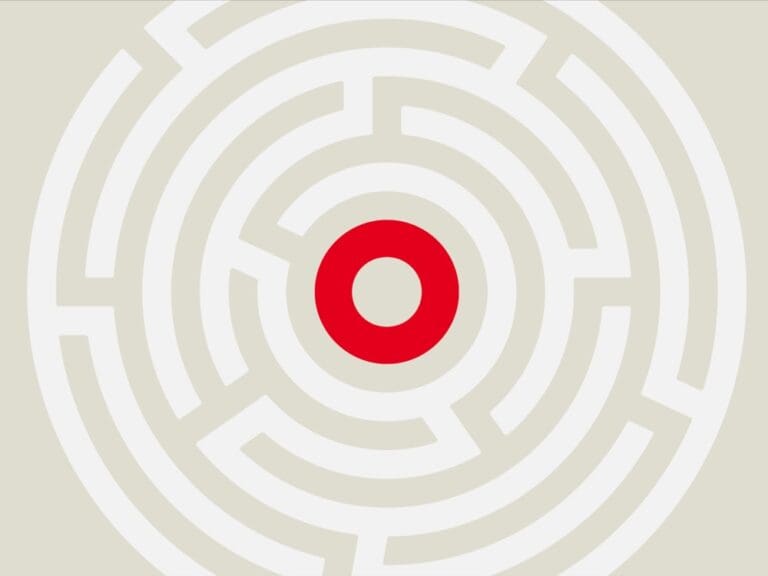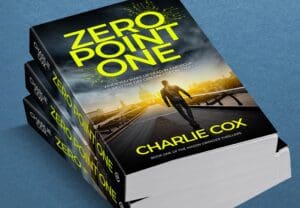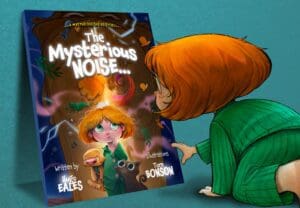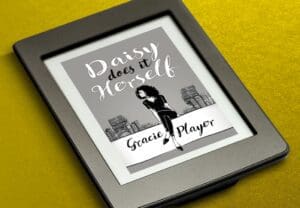
Making sense of author websites.
Our clients frequently ask about author websites – they know that they are a useful tool, but don’t perhaps have a full understanding of how to begin using them. In this article, we’ll be looking at the particulars of these and discussing why they are invaluable tools, especially for self-published authors, and how to get the best out of them. This week, we’re giving an overview of what a website can offer to an author, and what site visitors will expect to see when they arrive.
What is the point of an author website, and why might you want one?
Longevity in your writing and across your titles is key to achieving meaningful engagement with your audiences. A good website goes hand-in-hand with this; allowing you to support and broaden the reader ‘experience’. It adds context to your titles by being a place where information-hungry fans can learn more about past and future releases, as well as about you as an author and your personality. It’s also a place where you can offer to connect with your readers regularly; you should do everything you can to keep each reader interested as you release more books, so by encouraging those who visit your website to sign up to your mailing list, you can then keep them updated on the progress of your upcoming titles, reissues, sales or events. An author uses their website and mailing list to build readers’ anticipation while writing and preparing a book for release, and lets them know when they can expect to get their hands on the book that they have been eagerly awaiting.
When you’ve come across a new author, have you ever Googled their name to find out more about them and what they’ve written? What if someone comes across your book on Amazon and goes on to Google your name? They will expect to see a link to a beautifully designed, professional-looking author website since this is the precedent that has been set by traditionally published authors. There is very little else that you can do to better convince potential readers that you are the ‘real deal’. Take pride in how you appear online, and ensure your website presents a great picture for the whole world to see. It will pay off in the long run as more and more people discover you and your books.
Website Content
What do people expect to find when they visit an author’s website?
Homepage
This is the page that most of your site visitors will see first. It will ideally give an introduction to you as an author, show off your latest book in all its glory, and give site visitors a ‘call to action’ by asking them to engage with you on social media, visit other pages of the site or signup to a mailing list. It can be very tempting to overload this page with information and images, but keeping it to these simple points has been proven to give the best engagement. Your homepage isn’t designed to satisfy curiosity, but to further pique it.
Books Page
Your website is digitally representing you so the key things to showcase are your books. While your homepage might display your latest book, having a whole page dedicated to all your books is key to helping people find more of your titles. Having them listed side-by-side is a great way to show off all that you’ve accomplished, as well as making it very easy for fans of one book to discover what else you’ve written. Each book can have its own dedicated page as well, which can give lots of details, let you show off your glowing reviews and direct people to where they can buy their own copy, but the key thing is to have one page dedicated to showing all your books listed together.
About Page
This is your way to introduce and present yourself to the world. Some authors might struggle with writing a short biography about themselves, but if you’ve written multiple books, you can surely write a few hundred words about yourself! You can be light-hearted in this, or you can be formal; it is entirely up to you. Consider that the tone of the biography should, to some extent, correspond with the kinds of titles you have released and can also show the more personal side of you as an author, and let your readers get to know you a little better. Accompany this with a high-quality headshot of yourself, and you’ve got an ideal online introduction for your readership.
Contact The Author Page
In this digital age, getting in touch with the author of your favourite books is easy. Having the chance to engage with authors allows readers the chance to feel more invested in the books that they have written. Giving your fans a chance to get in touch with you about your books is a great way to let them engage directly and build this feeling of investment in you and your work. This is a very simple page within the website, but it performs a vital role in building up a valuable rapport between you and your readership.
Blog
While it might not be to everyone’s taste, keeping a blog regularly updated is a great way to talk about your books, talk about your experience of being self-published, or just letting your fans know how the writing is going with the forthcoming title. It will also help build up a history of your adventure as an author. If you don’t feel interested in maintaining a blog with regular posts, then it is best to not put one in. A blog which is never updated looks worse than having no blog at all!
Knowing what content to include on a blog can be tricky. To some extent experimentation is key; it can be a case of seeing what works and what doesn’t – using responses to your posts to inform what to post about in future. But you do have to start somewhere.
When your readers visit your website, they will want to find out more about what you’re doing as an author. A blog is a great way to let them know what you’re up to, and it’s something that readers are familiar with. If you are releasing a new book, then definitely make posts about it. Let your readers know when you’ve finished the first draft, for example, or when the cover artwork has been completed, what the release date will be, and, of course, when they can get their copy. Even when things aren’t moving forward quickly, you can post about writer’s block or what’s on your mind when you’re editing. If you’ve got book signings or public readings organised, let people know when and where they’ll be happening, and after the event, make a post about how much you enjoyed the process. If you don’t fancy writing a blog, or just don’t have the time, then simply ensure that your ‘about’ page has a little background information about you and your upcoming titles. Don’t force yourself to become a blogger if it’s not your cup of tea!
One important thing to keep in mind is: don’t complain to your readers. You can post about negative things, but they won’t want to read negativity. Instead, explain how you will overcome difficulties, or what you’ve learned from it. Keep your posts professional in terms of content, even if you use an informal tone.
















